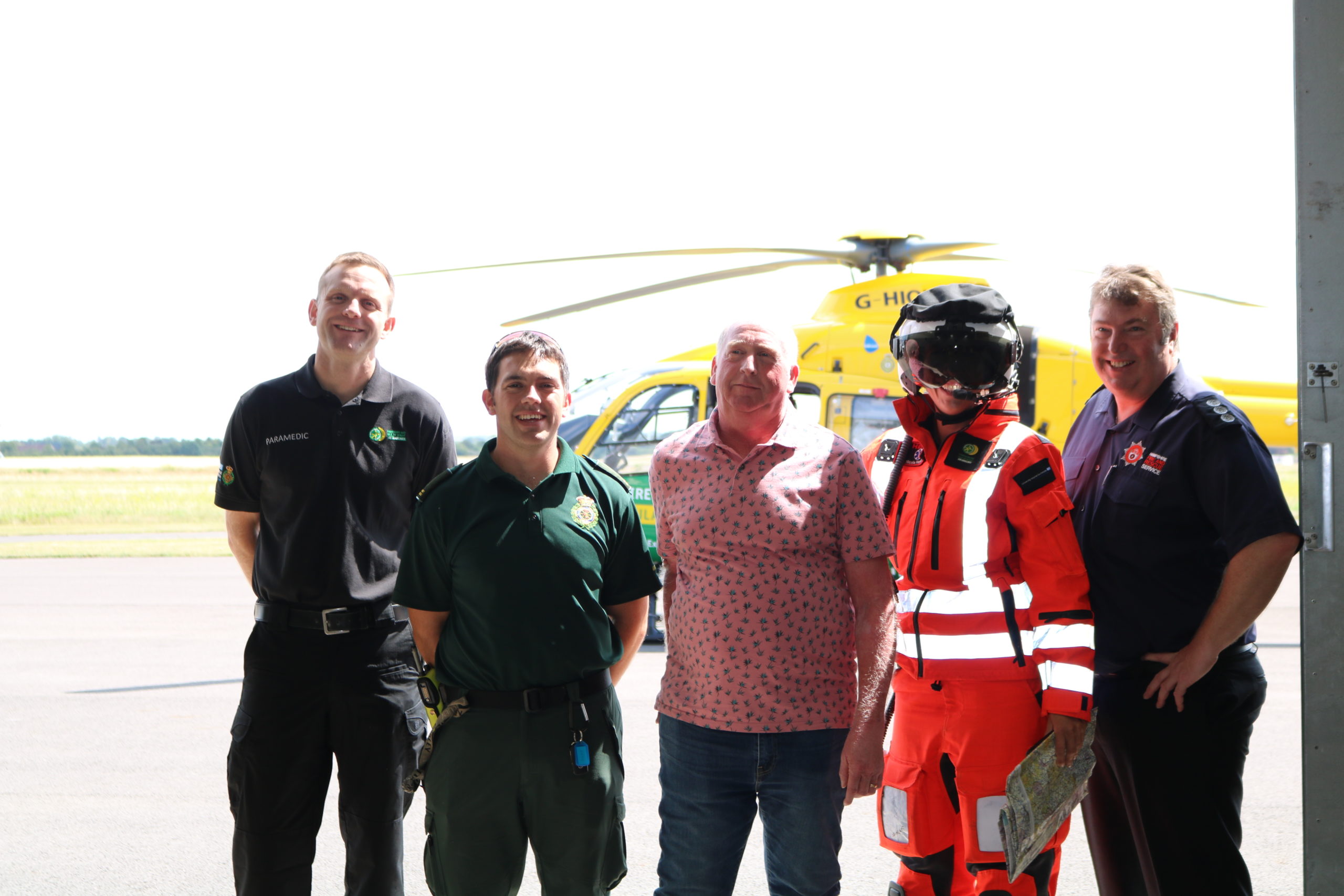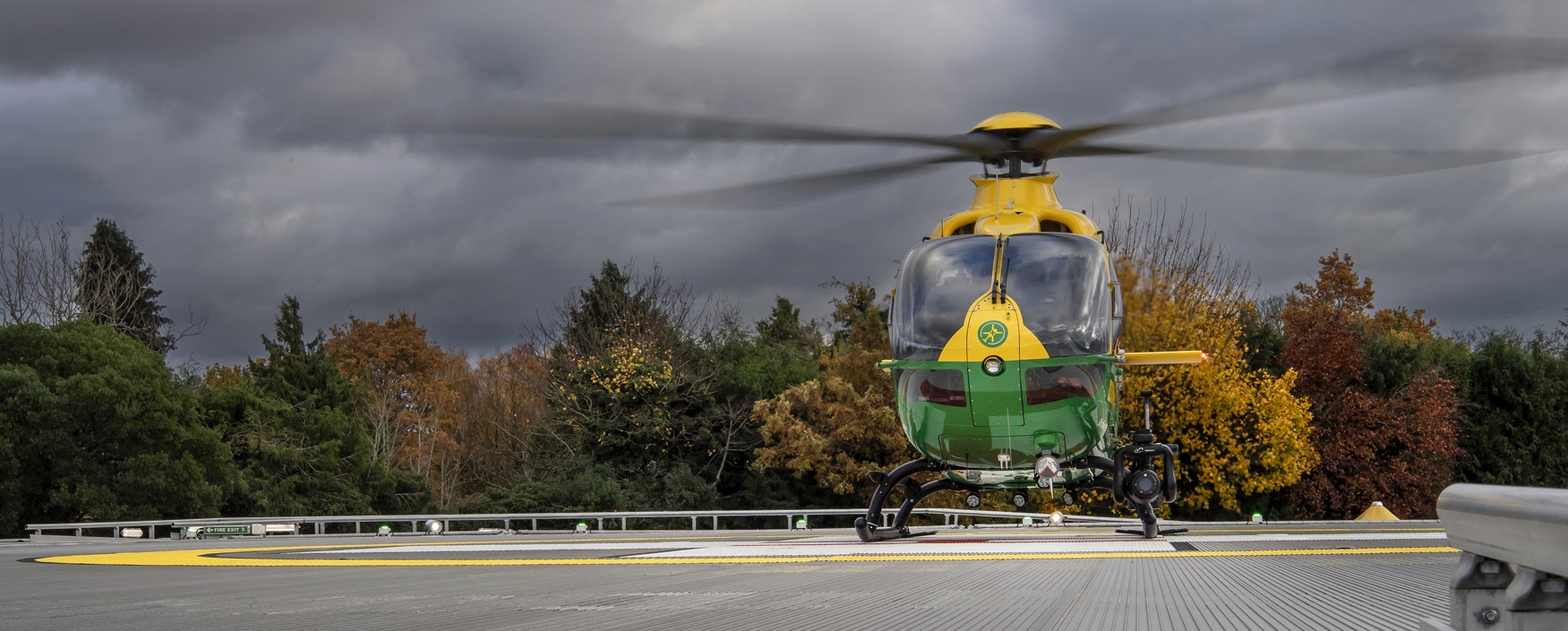“It’s amazing how your life can change in the blink of an eye.”
An emergency call comes in. There’s been a road traffic collision on the motorway. En route, the steady build-up of adrenaline begins to course through the Hampshire and Isle of Wight Air Ambulance crew’s veins. Plans are put in place. This is what they train for. But plans change.
Nearing the incident in our emergency response vehicle, our crew pass a crushed lorry. There is a patient on board with severe injuries. Stood down from the initial call, the team decide to approach the lorry and the patient in need to see if they can help. He is critically ill.
A long way from home
For 34 years, father-of-two Kevin Bent covered the length and breadth of the country as an HGV class 1 driver. But, on this icy March morning back in 2018, more than 200 miles away from his home in Lancashire, Kevin was trapped – in need of critical care.
Having left Rownhams services, heading northbound for the A34, a layer of black ice and standstill traffic lay ahead in waiting.
As he came around a curve in the road and spotted the traffic, Kevin had enough time to safely come to a stop. But, travelling at around 45mph, he hit the black ice and was powerless.
“There was nothing I could do,” he said. “I tried everything I could think of, but the lorry in front was just getting closer.”
The severity of Kevin’s injuries were clear to see. His legs were trapped under the crushed metal.
The fire service had to unbolt the driver’s seat as they carefully extricated Kevin from his vehicle – a complicated manoeuvre due to the potentially limb- and life-threatening injuries.

Kevin with members of HIOWAA and the ambulance and fire services who helped save his life.
The team gave Kevin strong pain relief to ensure he was well cared for during the extensive extrication – led by the fire service with further support from our colleagues at South Central Ambulance Service Hazardous Area Response Team.
Kevin was stabilised without needing an emergency anaesthetic, before our Critical Care Team transferred him to John Radcliffe Hospital, Oxford, by road ambulance.
“I cannot remember the next seven days,” he says.
“I had a nine-hour operation the day after the incident. But I then had a cardiac arrest and needed CPR in the recovery room.”
Kevin had 12 pins put in to secure his pelvis and two larger ones in his back.
Road to recovery
For the next three weeks he recovered in a hospital bed before being moved to Royal Blackburn Hospital so he could be closer to home.
“That’s when the work began,” he says.
It was discovered that Kevin had done long-term damage to his sciatic nerve – he now lives with foot drop: a muscular weakness or paralysis that makes it difficult to lift the front part of his foot and toes.
“It’s amazing how your life can change in the blink of an eye. I think I’ve been extremely lucky.”
While Kevin eventually returned to work, the extent of his injuries means he’s unable to drive a lorry and will likely never do so again.
He added: “I try my hardest to do everything I have always done, but sometimes I have to find a different way of doing it. As frustrating as it gets, I still manage it.
“The crew, along with the fire and police services, saved my life. I can never repay any of them for giving me a second chance at life.”



 Donate
Donate







